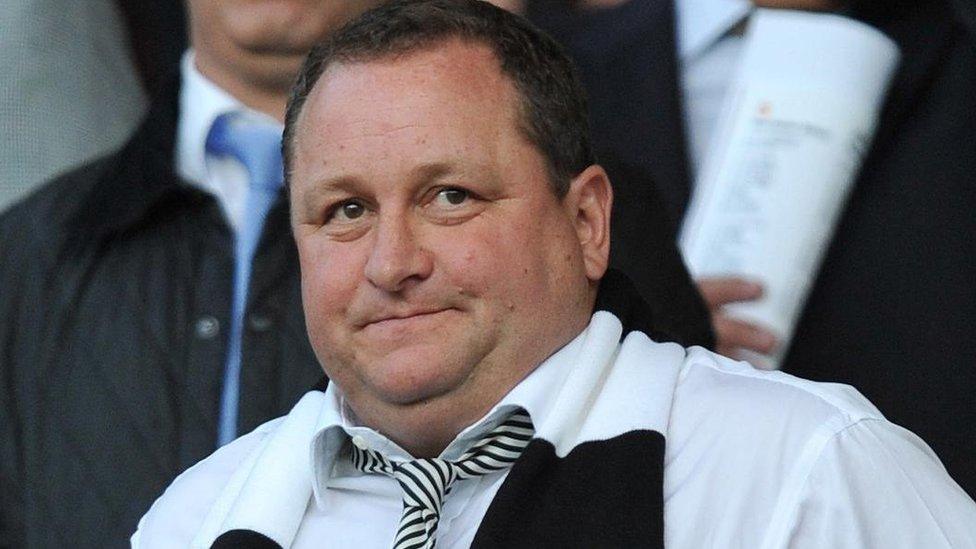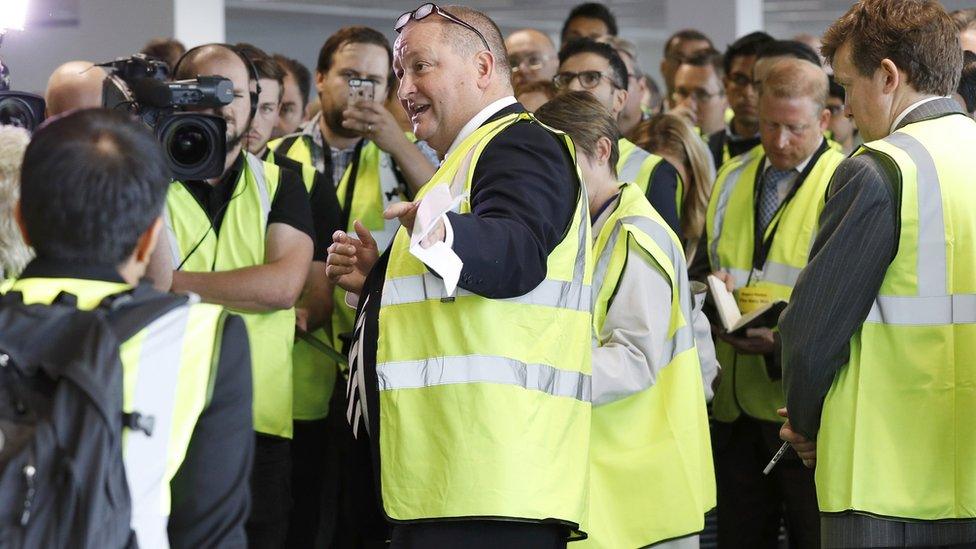Mike Ashley: Skirmishes, charm and wads of cash
- Published
Mike Ashley unloads wad of £50 notes
It was a telling moment in a day that was supposed to be a perfectly orchestrated piece of corporate theatre.
In a bid to prove to assembled reporters that he was all too aware of Sports Direct employees' daily vexations, billionaire founder Mike Ashley demonstrated a routine search procedure at the company's Shirebrook warehouse.
In his pockets? A huge wad of red £50 notes - like a caricature of a 1980s tycoon.
A brash, outspoken and often controversial figure, Mr Ashley is in many ways moulded by the business culture of the decade in which he founded the sports retail empire.
But the charm offensive on display at this year's annual general meeting was an attempt to rebrand himself, and Sports Direct, in an image more appropriate for an age when negative publicity can hammer a firm's bottom line, as well as its reputation.
The title of the main presentation was "Time To Change", and as if to emphasise this point, Mr Ashley told shareholders he "totally agrees" with Theresa May - who has pledged to give workers a greater say in corporate governance.
For most of the meeting, the entrepreneur answered questions courteously, but his underlying frustrations were betrayed in a short skirmish with a Unite representative, in which he blurted: "It is probably your fault that we are in this mess".
Ultimately, despite a protest vote by institutional shareholders, no heads rolled. The board, including the heavily-criticised chairman Keith Hellawell, were all re-elected, promising reforms and pleading for time to right Sports Direct's wrongs.
For his part, Mike Ashley sought to emphasise the sheer size of the Sports Direct operation, repeating several times that it was "impossible to get it all right" in a warehouse that housed seven million pairs of shoes.
But he appeared genuinely repentant, not avoiding difficult questions from attendees, and vowing that conditions in the site branded a "Victorian workhouse" would improve.
"If the headline is 'Sorry' then so be it," he told the quote-hungry group of reporters.
"Because clearly I could have done a better job."
The question is: would we have been treated to the same mea culpa had the share price remained at the level it was a year ago?
- Published20 September 2022

- Published7 September 2016
